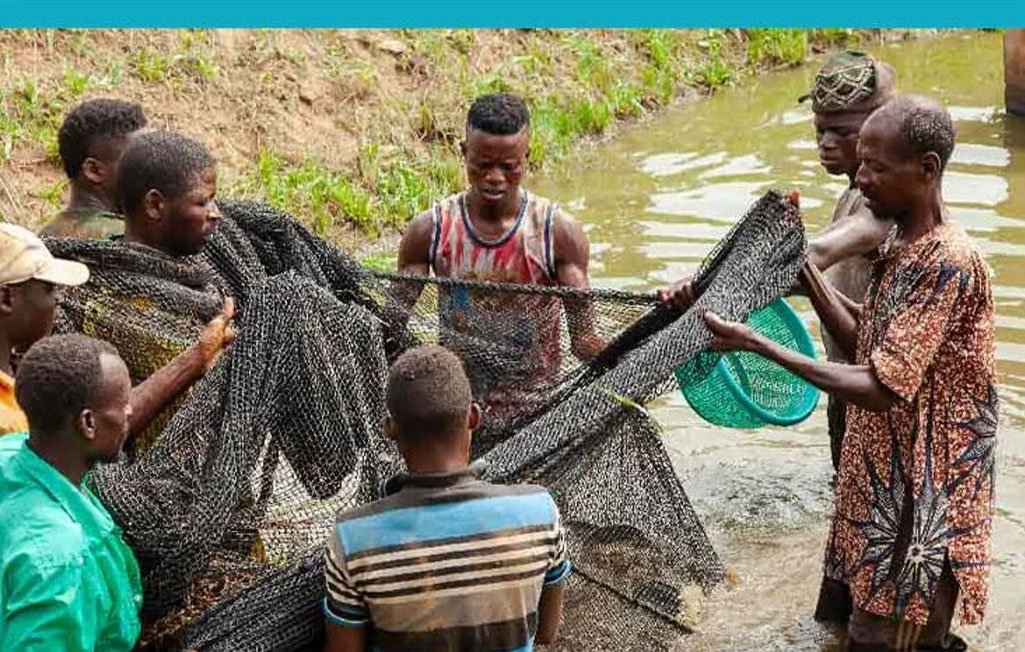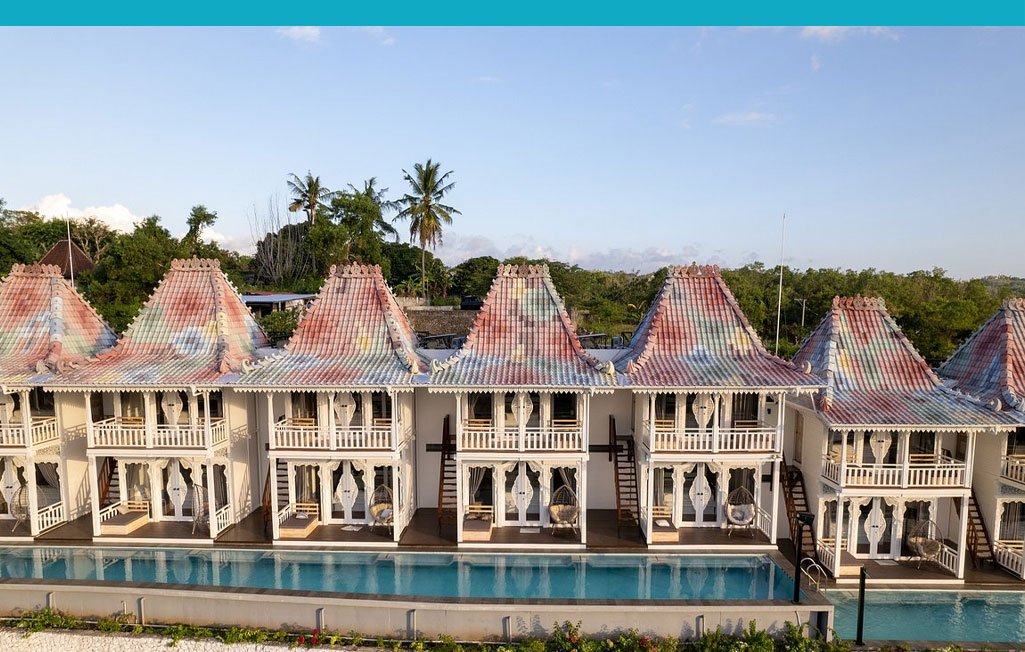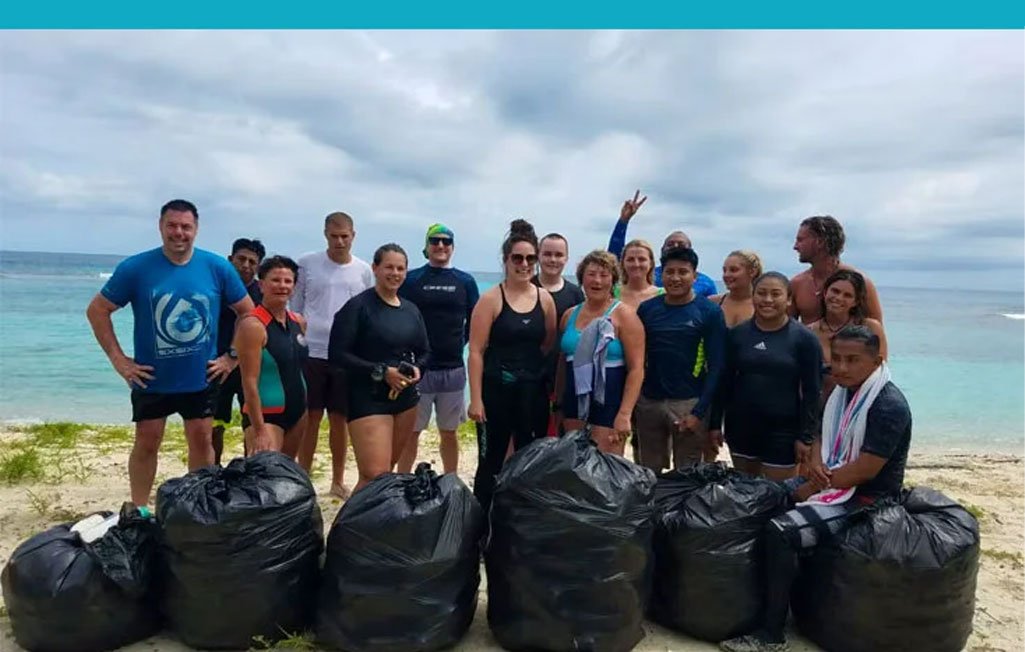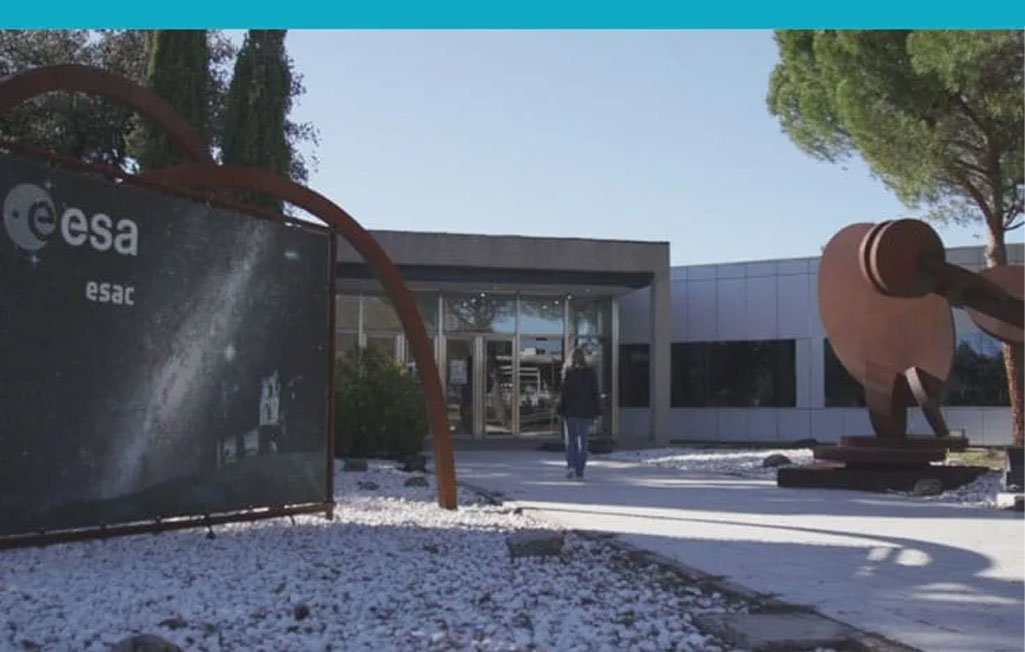Benin: Solid support from the African Development Fund dissuades emigration in the countryside
“Thanks to the African Development Fund project, we have decided not to try our luck in Europe or anywhere else.”
Twenty-year-old Ernest Akey skips among ponds to set his nets. Not long ago he thought of leaving for Europe in search of a better life, but now he can make a decent living from fish farming. “It’s hard work and we were making a loss in the past. But now we have more support and things are going better. The change has encouraged us, and we’ve decided not to try any ventures to Europe or anywhere else, but to stay and look after our ponds so that we can earn a better living,” Ernest says.
Living in Tchaourou, an agricultural district of the Borgou region in eastern Benin, on the border with Nigeria, the young fish farmer would like to expand his business. “We want to thank everyone who is helping us through this project, but we want them to help us expand our ponds because we have enough space to do that and it will make us better off,” Akey says.
 Elisabeth Kpekpassi, aged thirty, has also seen her life change thanks to the pond project. She used to work selling soup and struggled to provide for her family. Now she works at the ponds full-time after being trained in fish farming. “All our children now go to school, and we can pay for their education thanks to this business,” she says with satisfaction. She and 24 other women have created an association to help their husbands maintain the ponds. They also work in market gardening and livestock rearing.
Elisabeth Kpekpassi, aged thirty, has also seen her life change thanks to the pond project. She used to work selling soup and struggled to provide for her family. Now she works at the ponds full-time after being trained in fish farming. “All our children now go to school, and we can pay for their education thanks to this business,” she says with satisfaction. She and 24 other women have created an association to help their husbands maintain the ponds. They also work in market gardening and livestock rearing.
Ernest and Elisabeth are beneficiaries of the second phase of the Benin Community Forest Management Support Project, financed with $11.19 million by the African Development Fund, the concessional lending arm of the African Development Bank Group, and the Global Environment Facility. The project is being implemented in five regions of Benin: Atlantique, Zou, Collines, Borgou, and Donga.
“This second phase of the project consolidates the achievements of the first phase in improving forest cover and management infrastructure. Work in the second phase reinforces mechanisms for stabilizing Benin’s forest ecosystems, supports food security, and helps diversify income-generating activities for local people, particularly women and young people,” explains project manager Youssouf Kaboré.
In addition to fish farming, the project’s first phase created thousands of communal plantations and enriched about sixty sacred forests in this West African country, the cradle of Voodoo. The first phase also made it possible to create three wildlife ranches, Mr Kaboré explains.
Athanase Glinon, a 40-year-old ranger at Gbadagba ranch in the Zou region, starts daily rounds wearing his cap, a hunting rifle slung over his left shoulder. “Our job here is to watch over and protect the forest and its animals. We protect them from hunters. We do rounds in the forest morning and evening, and we also patrol the forest interior,” he explains.
“There used to be a lot of poachers shooting the animals, but we have stopped that. We thank the project and its partners for everything they have done. Without their help, we wouldn’t be working here. But we need more help because we still don’t have the proper equipment. We need proper torches and shoes that are safe for walking in the forest,” he says.
“The Bank is delighted with the results achieved – there has been a real impact in protecting the environment and biodiversity, and also in improving people’s standard of living,” says Mr Kaboré. “The Bank’s work in Benin will be continued, speeding up the structural transformation of agri-industry to provide food security through sustainable improvement of farming, processing of agricultural and fishery products, and the rational management of natural resources.”
The government of Benin and the Bank have launched a new project, Sustainable Aquaculture and Competitiveness of Fisheries Value Chains, with $ 26.43 million to consolidate the achievements of the Benin Community Forest Management Support Project in the aquaculture sector.
Discover more from sustainable future platform
Subscribe to get the latest posts sent to your email.




Post Comment